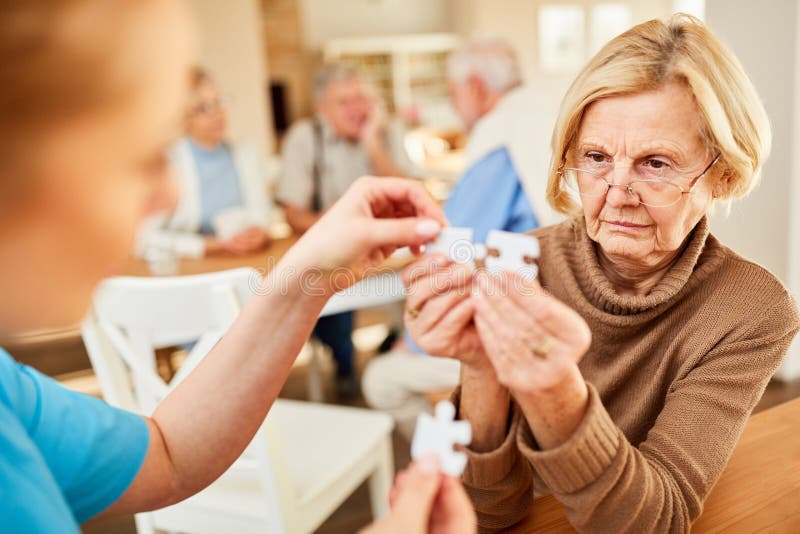Contents
How to Care for Elderly Parents with Dementia
1 IN 3 SENIORS DIES WITH ALZHEIMER’S OR ANOTHER DEMENTIA. IT KILLS MORE THAN BREAST CANCER AND PROSTATE CANCER COMBINED. Many families choose to keep their seniors in the family home, rather than in a care facility. For these family caregivers, learning how to care for elderly parents with dementia helps in many ways.

I always hear people say that blood is thicker than water. The bond between parents and their children can’t be explained in the simplest of terms. However, what is clear is that your parents will always have your back no matter what. So, it makes sense that when they can’t help you or themselves that much as they become seniors, you’d have their backs as well.
For most people, caring for an elderly parent seems to be a tough task. Personal care, help with activities of daily living, food, transportation to medical appointments, and other services are all provided by the caregiver or child taking care of the elderly parent. When dementia is present, however, this becomes more complex and challenging.
In this article, I will try my best to explain what dementia is and share how to deal with elderly parents with dementia, with or without outside help. I will also try and provide for what I learned throughout the years regarding how to care for elderly parents with dementia and introduce some amazing products that helped me and many others.
What is Dementia?
 To know how to care for elderly parents with dementia, you will need to know more about the illness. Dementia is a term that is defined as a loss of mental skills such as thinking, memory, attention, logical reasoning, and others. Dementia is more prevalent in individuals over 65, although it may strike anybody at any age. Treatment and early detection may help to reduce the disease’s development and preserve mental function.
To know how to care for elderly parents with dementia, you will need to know more about the illness. Dementia is a term that is defined as a loss of mental skills such as thinking, memory, attention, logical reasoning, and others. Dementia is more prevalent in individuals over 65, although it may strike anybody at any age. Treatment and early detection may help to reduce the disease’s development and preserve mental function.
Basically, dementia is a general term for a significant loss in the mental capacity that interferes with everyday living. Alzheimer’s disease is a particular illness that is the leading cause of dementia. Dementia is not actually a natural aspect of aging, even though it mainly affects older people.
Many seniors go their whole lives without ever getting dementia. Information and experiences gained through time, old memories, and language would usually remain intact for these seniors. Dementia develops when something damages or alters the brain. Dementia affects individuals differently and causes various symptoms depending on which part of the brain is affected.
Five Most Common Types of Dementia
Dementia results in the death of certain brain cells as well as tissue loss, as previously stated. The ill person’s most often impacted areas are memory, reasoning, conduct, and the capacity to do certain activities. Alzheimer’s disease, Vascular dementia, and Lewy Body disease are the three most typical types of dementia. Knowing which type of dementia is essential in how to care for elderly parents with dementia.
Alzheimer’s Disease
The most prevalent cause of dementia, accounting for 60 to 80 percent of cases, is Alzheimer’s disease. It’s a gradual illness that starts with minor memory loss and progresses to the inability to converse and react to the surroundings. The unusual build-up of proteins in and around brain cells is the origin of Alzheimer’s disease.
Vascular Dementia
If an artery in the brain is blocked, a stroke may induce vascular dementia. Note, however, that strokes do not always result in vascular dementia. Strokes or other problems with blood flow to the brain are related to around 10% of dementia cases. Multi-infarct dementia and Binswanger’s disease are two of the most prevalent types of vascular dementia.
Multi-infarct dementia
It is the most prevalent kind of Vascular dementia. It is caused by a series of strokes, with symptoms that typically appear gradually over time. Here, the part of the brain involved in learning, memory, and language is damaged by strokes. Severe sadness, mood swings, and epilepsy are all possible symptoms.
Binswanger’s disease
This was formerly believed to be uncommon, but it is currently being reconsidered to be more frequent than previously thought. It is caused by excessive blood pressure, artery thickness, and insufficient blood flow. Early on in the illness, slowness, tiredness, trouble walking, emotional ups and downs, and a loss of bladder control are common symptoms.
Lewy Body Disease
Lewy body disease is a form of progressive dementia that causes a decrease in thinking, reasoning, and independent function. Caused by irregular microscopic deposits, it destroys brain cells over time. It is another form of progressive dementia. Lewy Body Disease results in trouble with thinking or reasoning and all-around mind and body function.
About 10% of Lewy body dementia cases seem to be caused by genetics. The illness is passed down from one parent to the other. In addition to the more common symptoms of dementia, individuals with this kind of dementia may have stiffness or trembling in their movements or balance.
How to Deal with Elderly Parent with Dementia

Before I move on to how to care for elderly parents with dementia, I need to establish something first. Dealing with elderly parents usually involves lots of love, care, compassion, and, most importantly, patience. Besides the generational gap, there is bound to be disagreement due to a lot of things. However, in general, patience and a positive disposition are needed even more when dementia is involved.
Taking care of elderly parents can be a bit complicated. With dementia, it becomes a bit more challenging as well. Memory loss and confusion may be minimal in the early phases of dementia. However, this can often lead to frustration on their part. You will need to step up the level of love, care, and attention when you have elderly parents with dementia.
Frustration is very contagious. For me, the best way to cope with this is to take deep breaths and count to five before doing or saying anything. Of course, you don’t have to be the perfect child or caregiver all the time. What’s important is that if you did something to make your elderly parents sad, you become more mindful, so it does not happen again.
In summary, in dealing with elderly parents with dementia, you need to be as patient as you can, give as much attention, and convey your compassionate but firm self. Frustration will be a very common occurrence, but you can deal with it easily by focusing on the positive. Never hesitate to take a quick break from caregiving when you feel suffocated or stressed. Always remember that happiness can be more contagious than frustration.
How to Care for Elderly Parent with Dementia

When caring for elderly parents with dementia, you need to first know and understand the type of dementia they have. As mentioned earlier, you need to have a good disposition in caring for your elderly parent and be adequately informed to address any and all their needs. Here are my tips from experience and hopefully help and give positive results for both your elderly parents with dementia and you as the caregiver.
Get Help and Support
First of all, regarding how to care for elderly parents with dementia, you need to know as much as you can, especially the type of dementia they have. From there, you will be able to properly assess the situation and make plans to address future and possible problems. A proper assessment can get better-targeted help and support.
After knowing which type of dementia your elderly parent has, you need to consider if it is worth getting outside help. Here are the options that I know of.
Family Caregiving
If you chose not to get outside help, this would mean that you will be the caregiver and that you need to familiarize yourself with the different caregiver skills. I mainly recommend this method simply because familiarity is very important when caring for people with dementia. Of course, keep in mind that you don’t necessarily need training. Just be sufficiently informed by researching and asking for advice from people with experience.
Getting a Caregiver
Although there will always be a responsibility for a family to care for their elderly, it is important to know your limitations. When your elderly parents need specialized care, then never hesitate to get professional help. Of course, if you don’t have enough time between your jobs to take care of your elderly parents, then getting professional help is the best way to go.
Nursing Homes
Contrary to what a lot of people know, not everyone can be accepted by nursing homes. The ones admitted are those that require skilled nursing care. They are the ones that really cannot act for themselves already and need constant supervision. Of course, many consider this the least favorable option of elderly care and believe it should only be considered as the last resort.
An Active and Calm Mind
Aside from getting the necessary help and support, having your elderly parents’ minds occupied sufficiently does wonders to their moods and overall health. Studies have shown that an active mind slows down the degrading process and improves the condition of dementia patients. Sensory toys and puzzles or activities help a lot in keeping elderly parents’ minds active.
Puzzles
The Relish Handyman Magnetic Puzzle – Alzheimer’s Products & Dementia Activities for Seniors & Elderly People, can be bought from the Relish store in Amazon and is one of the best products I know. The company involved has more than 10 years of experience in making these types of activities. What makes this really worth buying is that it uses magnetic pieces. It makes it very easy to use and clean up afterward.
Fidget Helps
Twiddle Sensory Toys for Dementia and Alzheimer's Patients - Fidget Toys for Therapy (Pup) is another product I can recommend wholeheartedly. You can buy this in the Twiddle store. It is a sensory therapy tool that is very effective and safe for reducing stress and improving brain function in older people with Alzheimer’s and other dementias. What makes this really worth getting is its durability, soft components for safe handling, and easy cleaning since it is machine washable and even dryer friendly.
Tracking Time
Lastly, the ORKA Talking Clock for Seniors can be bought in the ORKA store. This clock is wonderfully made and helps significantly in the everyday life of elderly parents with dementia. The clock is also a voice recorder. Recording speech, lists, or even simple reminders is a well-known dementia aid. What makes this product worth buying is its durability, and easy to use and maintain and the option for using a soft tune rather than the usual jolting alarm noise.
Happiness in Comfort
Happiness is essential in any tip on how to care for elderly parents with dementia. Elderly parents with dementia definitely experience pleasant emotions. They can, in fact, feel joyful, secure, and at ease. As I mentioned before, they are also prone to frustration. One of the best ways to avoid it is to have them as comfortable as possible.
The ODOXIA Fidget Pillow can be bought in the ODOXIA store and not only has calming activities on it, but is also incredibly soft and comfortable to use. It’s called a fidget pillow because it acts as something that can keep your restless elderly parent’s hands and minds sufficiently occupied. The sewn well made me recommend it, plus, the colors are easy on the eyes, and it is incredibly light and safe to use.
Next is the SOFWO Fidget Blanket, a fidget blanket with simple activities designed to provide mild distractions and promote brain function. You can buy the product on Amazon for a reasonable price. In addition, it has a lot of designs available. This product is even more remarkable because you can use it as a fidget object, a blanket, and even as a pillow. To make a pillow, either fold it or roll it. The fabric used is soft yet textured enough to increase sensory perception, and it is sewn wonderfully for high durability.
Make Your Home Safe
This is my last tip on how to care for elderly parents with dementia. Seniors with dementia require a higher level of care and safety. Confusion and disorientation, movement or coordination difficulties, and memory loss are all major safety issues. Alzheimer’s, in particular, usually advances through many phases, with symptoms becoming more severe as time goes on. Early on in Alzheimer’s disease, elderly people may suffer mental lapses. Still, as it progresses, they may lose their sense of time and location and forget how to do daily tasks.
With regard to safety in people with dementia, constant supervision is absolutely necessary. It is why I can recommend the Mini Guardian 4G Life Saving Medical Alert System as a GPS tracking and emergency fall alert button for elderly parents with dementia. The device itself is small, light, and is easily wearable. It is very durable and has a fantastic battery life compared to other brands or types. Another added bonus is the device is waterproof, so you won’t have to take it off even during baths or when drinks get accidentally spilled.
Lastly, the Smart Caregiver® Light Outlet with Cordless Grey Floor Mat and Cordless Alarm – Turns on a Light When They get up and alerts a Caregiver is another product that I definitely recommend getting. As it describes, it alerts you when your elderly parent gets out of bed. This is especially useful in monitoring them at night when they are in their room. We like how well-made this product is. And it fits into any standard outlet and shows little to no detection delay. Many people and I use this product since it comes pre-programmed already and is very easy to use.
Deep Breaths, Celebrate and be Kind
To end this article on how to care for elderly parents with dementia, I think it is important to remind you that not everyone will always choose to care for their elderly parents, especially when they have the complication of having dementia. However, what many people don’t tell you is that it does not have to be that way. You have to prepare and be informed in giving the proper and necessary care. Still, you will also be able to avoid any unnecessary mistakes.
Caring for the elderly with dementia may prove difficult, but you should never give in or up because of that. Never forget that it’s ok to take breaks to breathe when things get frustrating. Celebrate every time you get to accomplish something. Lastly, you should always keep in mind, no matter what, to be kind and patient.
Read More






